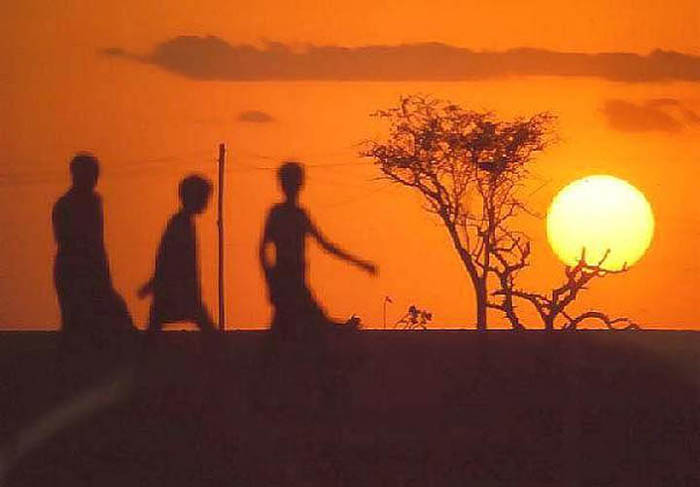NAIROBI (Reuters) - Villages are burned and deserted, locals are fleeing to the bush, and basic health needs are going unmet during conflict in Ethiopia's Ogaden region, an international aid agency said on Tuesday.
"We found a very precarious situation in a very harsh environment," Medecins Sans Frontieres' (MSF) Ethiopia coordinator Loris De Filippi said of the group's recent assessment missions to the remote region of east Ethiopia.
He was speaking at a news conference called by MSF to protest against what it said was Ethiopia's blocking of further access for MSF to provide humanitarian aid to an estimated 400,000 people in three of the worst-affected areas.
Prime Minister Meles Zenawi's government has denied blocking MSF, saying it does not maintain any no-go zones in Ethiopia.
It has been waging a campaign against Ogaden National Liberation Front (ONLF) rebels in the zone for several months.
De Filippi said three attempts by MSF staff to enter Ogaden's critical zones in recent days failed, while repeated appeals to Ethiopian authorities had fallen on deaf ears.
Two prior assessment missions to the region at the end of June and start of July had been deeply worrying, MSF staff said.
"I saw burned out villages. I remember passing a number of villages that were empty other than the elderly and sick," Eileen Skinnider, assistant coordinator for Ethiopia, told the news conference via an Internet link from Canada.
"We didn't pass one commercial vehicle ... I saw women and children chased away (by soldiers) trying to collect water from wells ... I saw small groups of men living in the bush."
MSF's departure from Ogaden came after the International Committee of the Red Cross (ICRC) said last month it had pulled out of the region following a government order.
With journalists effectively blocked from the region, it is hard to verify the humanitarian situation, or the frequent claims and counter-claims of mass casualties and human rights abuses between the government and ONLF.
A U.N. fact-finding mission is currently there.
De Filippi said: "I think we are missing a big thing that is happening under our eyes."
"We asked, as a desperation measure, for a humanitarian corridor for 24 hours. They (Ethiopian authorities) said they needed to finish operations first. But we said humanitarian aid is not bringing flowers to graves."
In the three worst-affected areas now off-limits to MSF, he added, there was one doctor for 400,000 people. Drugs were scant, natal care was minimal, and there were problems of respiratory infections, diarrhoea, malnutrition and tuberculosis in an area already prone to famine, De Filippi said.
Ethiopia calls the ONLF -- whose numbers are estimated at several thousand -- a terrorist group backed by foe Eritrea.
ONLF rebels say they are fighting for greater autonomy for their homeland, an arid region on the Somalia border which is mainly populated by nomadic herdsmen.
© Reuters 2007. All Rights Reserved.


















No comments:
Post a Comment